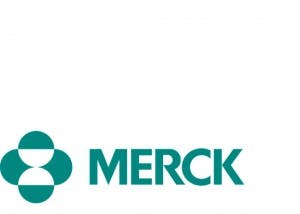In the big pharma sector, it can oftentimes be hit or miss when seeking the next big growth stock. Yet, while it may be difficult to predict what company will produce “the next big thing,” there is something to be said about riding price up slowly while cashing in on dividends along the way. One stock opportunity that could provide a steady stream of dividend income is Merck & Co., Inc. (NYSE:MRK). With its product pipeline full of potential winners, investors could be well-rewarded in terms of income and eventual high growth.

Finding profit in new alternatives
While the economic recession of 2008 and 2009 impacted numerous companies’ stock prices and dividends, the way that the affected companies have bounced back could say a lot about their future potential growth.
Back in November 2011, Merck & Co., Inc. (NYSE:MRK) announced a dividend increase – the first in seven years – which was a good move for the firm. Since that time, Merck’s cash and short-term equivalents have risen by over $2.5 billion, which is substantial for a pharmaceutical firm. Given this, it could be that Merck has future dividend increases in store for its shareholders.
Merck & Co., Inc. (NYSE:MRK) has had to push through a few hurdles over the past several months, though. For instance, the loss of the company’s patent exclusivity for its allergy and asthma drug, Singulair, could have had an extremely negative effect on company earnings, especially in light of the fact that, after Merck’s 20-year exclusive rights to this drug, generic drug manufacturers can now begin to produce their own versions of this med. Yet, even with that large blow, Merck finished out 2012 on a positive note, including an increase in earnings and earnings per share.
Pushing through the product pipeline
One reason for Merck & Co., Inc. (NYSE:MRK)’s positive results, in lieu of the Singulair situation, is the fact that Merck continues to develop new products with high potential. For example, the company’s diabetes drug, Januvia, as well as Gardasil (a vaccine used for treating cervical cancer) have both posted highly positive sales results.
Merck & Co., Inc. (NYSE:MRK) has worked to develop other products, too, that could essentially help in replacing the lost future revenue from Singulair. These include Suvorexant (used to treat insomnia), Bridon (a neuromuscular reversal agent), and its cholesterol drug, Tredaptive.
Are competitors close behind?
Several of the other big pharmaceuticals have certainly had their ups and downs over the past few years as well. Pfizer Inc. (NYSE:PFE), for example, recently dealt with the Canadian Supreme Court’s ruling that the company’s long-time patent for its popular drug, Viagra, is invalid.
The court stated that its reasons for this include Pfizer’s failure to specify the active ingredient, sildenafil, in the drug. Regardless, Pfizer has stated its intent to continue its defense against the challenges that this ruling has posed to the company’s intellectual property.
Despite Pfizer Inc. (NYSE:PFE)’s legal challenges, though, the company has still continued to pay out a dividend of $0.88 per share to its stockholders, which equates to an annual dividend yield of 3.7%. Its shares are also expected to rise due to Pfizer Inc. (NYSE:PFE)’s otherwise strong fundamentals.
Similarly, Bristol Myers Squibb Co. (NYSE:BMY) Squibb is continuing to fill its product pipeline as well, currently focusing on three experimental meds that are used in treating Hepatitis C. Recently, in a 24-week trial, all three test medications successfully cleared the virus in 15 out of 16 patients.
The company is, however, competing among several other big pharma firms (including Merck) in developing new pills that will help eliminate the current therapy for Hep-C, which can cause flu-like side effects for patients.
Overall, Bristol Myers Squibb Co. (NYSE:BMY) has continued to post strong share numbers, and is currently trading near the stock’s 52-week high. The company also pays a very healthy dividend of $1.40 per share, which equates to a dividend yield of 3.4%.
Just like Merck & Co., Inc. (NYSE:MRK), both Pfizer and Bristol Myers Squibb Co. (NYSE:BMY) face tough competition in their respective market. Getting new drugs pushed through the process can be tedious and costly, especially if the product is unsuccessful. The good news for Merck’s investors is that the company possesses more of a cash cushion to help in offsetting negative product outcomes.
In addition, despite the intense competition that Merck has faced from generic drugs, the firm continues to post strong earnings per share. Investors can also take comfort in the potential for a future rising dividend payout.
The bottom line
Although many of the big pharmaceuticals offer nice dividend yields, along with potential for future share growth, Merck could quite possibly offer investors just a bit more. With the possibility of rising generic sales, Merck has continued to reward its investors via a consistently rising dividend payment. Although the company’s recent share price increase could, in part, be due to overall market bullishness, the firm possesses many other positive fundamentals like a strong brand name and solid earnings growth estimates that could reward investors quite nicely over both the short and long run.
The article Merck’s Product Pipeline Could Lead To Healthy Shareholder Returns originally appeared on Fool.com.
Copyright © 1995 – 2013 The Motley Fool, LLC. All rights reserved. The Motley Fool has a disclosure policy.

